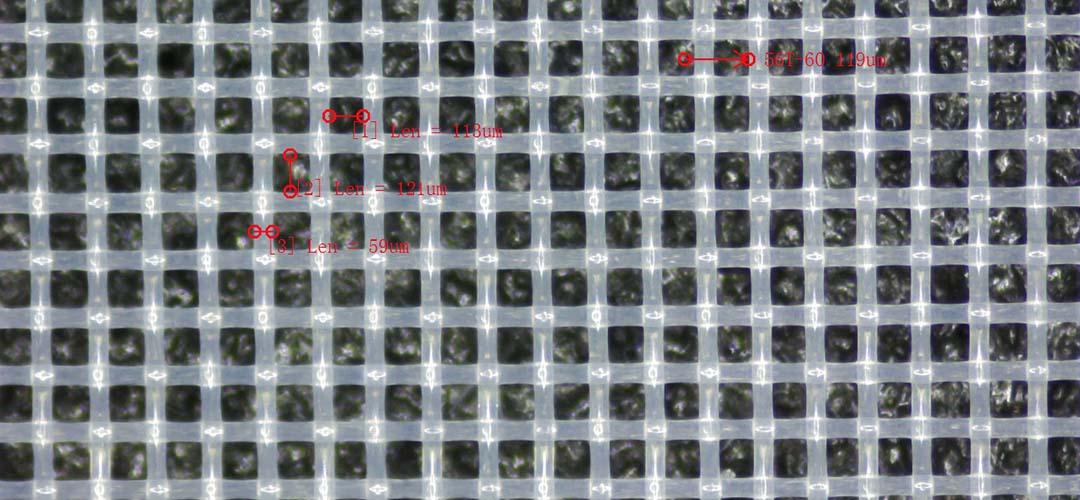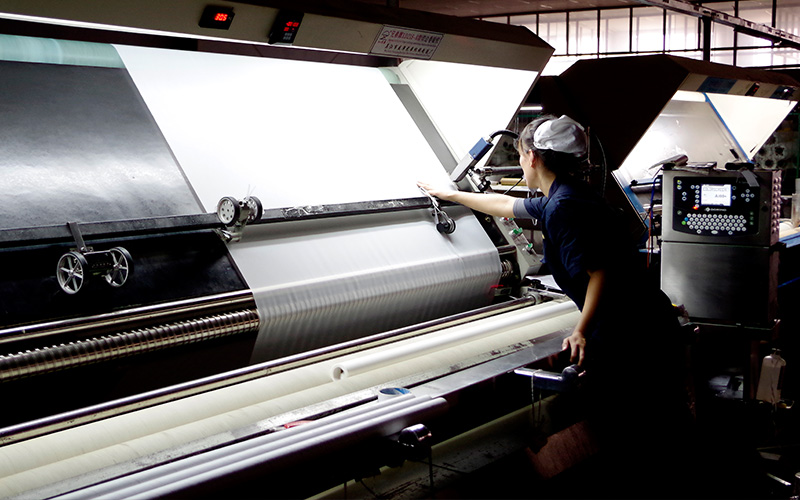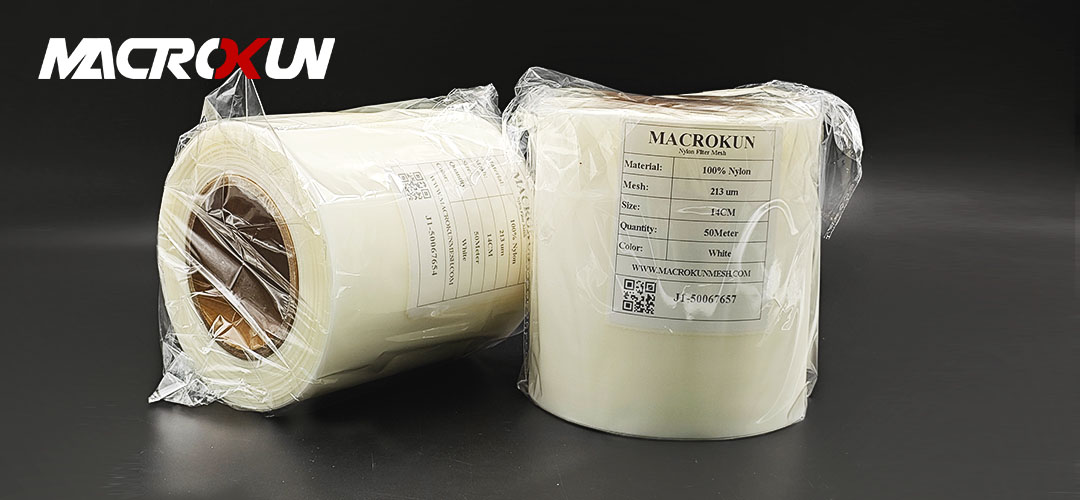Nylon mesh is a versatile and efficient material that is commonly used for filtration purposes in various industries. Its unique properties make it the ultimate choice for many filtration applications, offering a wide range of benefits that make it stand out from other materials.

One of the key benefits of using nylon mesh for filtration is its durability. Nylon is a strong and resilient material that can withstand high temperatures and harsh chemicals, making it ideal for use in demanding filtration environments. This durability ensures that the mesh will not break or tear easily, providing long-lasting performance and reliability.
In addition to its durability, nylon mesh is also known for its flexibility. The material can be easily molded and shaped to fit different filtration systems and applications, making it a versatile option for a wide range of industries. This flexibility allows for customization and adaptation to specific filtration needs, ensuring optimal performance and efficiency.
Another benefit of using nylon mesh for filtration is its excellent filtration efficiency. The material has a fine pore size that can effectively capture and remove particles and contaminants from liquids and gases, ensuring clean and pure filtration results. This high filtration efficiency makes nylon mesh an ideal choice for critical filtration applications where purity and quality are essential.
Furthermore, nylon mesh is easy to clean and maintain, making it a cost-effective option for filtration systems. The material can be easily washed and reused multiple times without losing its filtration efficiency, reducing the need for frequent replacements and saving on maintenance costs. This ease of maintenance also helps to prolong the lifespan of the filtration system, ensuring long-term performance and reliability.
Additionally, nylon mesh is resistant to corrosion and chemical degradation, making it suitable for use in a wide range of industrial environments. The material can withstand exposure to acids, alkalis, and other corrosive substances without deteriorating, ensuring consistent filtration performance even in harsh conditions. This resistance to corrosion and chemical degradation makes nylon mesh a reliable and durable choice for demanding filtration applications.
Overall, the benefits of using nylon mesh for filtration are clear. Its durability, flexibility, filtration efficiency, ease of maintenance, and resistance to corrosion make it the ultimate choice for versatile and efficient filtration. Whether used in water treatment, food and beverage processing, pharmaceuticals, or other industries, nylon mesh offers a reliable and cost-effective solution for achieving clean and pure filtration results. With its unique properties and numerous advantages, nylon mesh continues to be a popular choice for filtration applications worldwide.
Nylon mesh has become a popular choice for filtration in various industries due to its versatility and efficiency. This durable material is known for its strength and resistance to chemicals, making it ideal for a wide range of applications. From food and beverage processing to pharmaceuticals and water treatment, nylon mesh is used to separate solids from liquids, remove impurities, and ensure product quality.
In the food and beverage industry, nylon mesh is commonly used for filtering liquids such as juices, wines, and oils. Its fine mesh size allows for the removal of particles and impurities, resulting in a cleaner and clearer final product. Nylon mesh is also resistant to high temperatures, making it suitable for hot liquid filtration processes. Additionally, its non-reactive nature ensures that the taste and quality of the food or beverage are not compromised during the filtration process.
In the pharmaceutical industry, nylon mesh is utilized for filtering chemicals, solvents, and pharmaceutical products. Its high chemical resistance makes it an ideal choice for applications where compatibility with a wide range of substances is required. Nylon mesh can effectively remove contaminants and ensure that the final product meets strict quality standards. Its durability and longevity make it a cost-effective solution for pharmaceutical companies looking to improve their filtration processes.
In the water treatment industry, nylon mesh is used for filtering water and removing impurities such as sediment, debris, and microorganisms. Its fine mesh size allows for the efficient removal of particles, ensuring that the water is clean and safe for consumption. Nylon mesh is also resistant to bacteria and mold growth, making it a hygienic choice for water filtration systems. Whether used in residential, commercial, or industrial settings, nylon mesh provides reliable and consistent filtration performance.
In the automotive industry, nylon mesh is employed for filtering fluids such as oil, fuel, and coolant. Its high tensile strength and resistance to abrasion make it suitable for demanding applications where durability is essential. Nylon mesh can effectively trap contaminants and prevent them from circulating through the engine, ensuring optimal performance and longevity. Its flexibility and ease of installation make it a convenient choice for automotive manufacturers and service providers.
In the chemical industry, nylon mesh is utilized for filtering a wide range of chemicals and solvents. Its compatibility with aggressive substances and high temperatures makes it a versatile option for chemical processing applications. Nylon mesh can withstand harsh conditions and maintain its filtration efficiency over time, reducing maintenance costs and downtime. Its ability to capture fine particles and impurities ensures that the final product meets stringent quality requirements.
Overall, nylon mesh is a versatile and efficient filtration material that finds applications in various industries. Its durability, chemical resistance, and fine mesh size make it an ideal choice for separating solids from liquids, removing impurities, and ensuring product quality. Whether used in food and beverage processing, pharmaceuticals, water treatment, automotive, or chemical industries, nylon mesh provides reliable and consistent filtration performance. With its numerous benefits and wide range of applications, nylon mesh remains the ultimate choice for versatile and efficient filtration.
Nylon mesh is a popular choice for filtration due to its versatility and efficiency. It is commonly used in a variety of industries, including food and beverage, pharmaceutical, and automotive. Nylon mesh offers excellent strength and durability, making it ideal for filtering out particles of various sizes. When choosing the right nylon mesh for filtration, there are several factors to consider to ensure optimal performance.
One of the most important factors to consider when selecting nylon mesh for filtration is the mesh size. The mesh size refers to the number of openings per inch in the mesh. A smaller mesh size will filter out smaller particles, while a larger mesh size will allow larger particles to pass through. It is important to choose a mesh size that is appropriate for the size of the particles you are trying to filter out. For example, if you are filtering out fine particles, you will need a mesh with a smaller size.
Another important factor to consider when choosing nylon mesh for filtration is the mesh weave. The weave of the mesh refers to how the strands of nylon are arranged to form the mesh. There are several different types of weaves, including plain weave, twill weave, and Dutch weave. Each type of weave has its own unique characteristics and is suitable for different applications. For example, a plain weave is ideal for general filtration applications, while a Dutch weave is better suited for applications that require a high level of filtration efficiency.
In addition to mesh size and weave, it is also important to consider the material of the nylon mesh. Nylon mesh is available in a variety of materials, including nylon 6 and nylon 6/6. Nylon 6 is a general-purpose material that is suitable for most filtration applications, while nylon 6/6 is a more durable material that is ideal for applications that require high strength and resistance to chemicals. It is important to choose a material that is compatible with the specific requirements of your filtration application.

When selecting nylon mesh for filtration, it is also important to consider the temperature and chemical compatibility of the mesh. Nylon mesh is resistant to a wide range of chemicals, making it suitable for use in harsh environments. However, it is important to ensure that the mesh is compatible with the specific chemicals that will be present in the filtration process. Additionally, nylon mesh has a temperature limit, so it is important to choose a mesh that can withstand the temperature conditions of your filtration application.

In conclusion, nylon mesh is a versatile and efficient choice for filtration. When choosing the right nylon mesh for filtration, it is important to consider factors such as mesh size, weave, material, temperature, and chemical compatibility. By taking these factors into account, you can ensure that you select the best nylon mesh for your specific filtration application. Whether you are filtering out fine particles in the food and beverage industry or removing contaminants in the pharmaceutical industry, nylon mesh is the ultimate choice for versatile and efficient filtration.
Pre: Nylon Mesh Air Filters: Ensuring Clean Air in Homes and Industrial Settings
Next: Nylon Filter Mesh Fabric: High-Quality Material for Diverse Filtration Applications

MACROKUN has established long-term and stable cooperative relations with many transportation companies such as China Post, DHL, FEDEX, USPS, UPS, etc. Of course, MACROKUN can also provide air and sea transportation. The powerful logistics system enables all MACROKUN'S Printing Mesh, Filter Mesh and Filter Bags and so on to be easily and efficiently transported to any place. For quotes and inquiries, please email our sales team.





